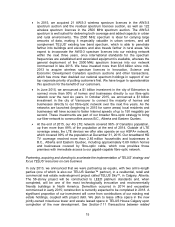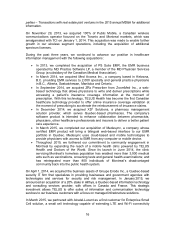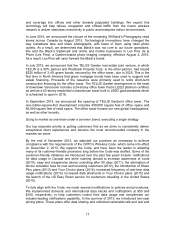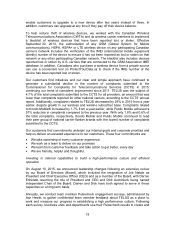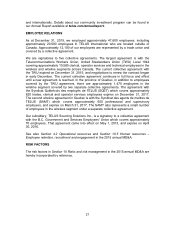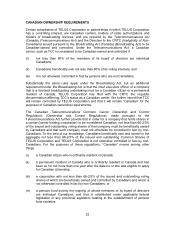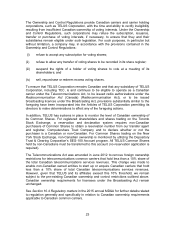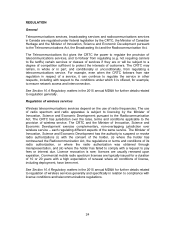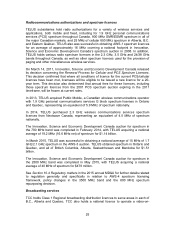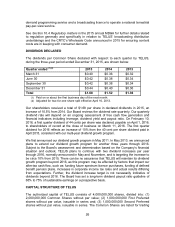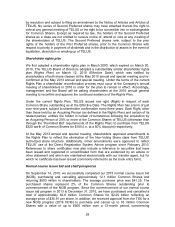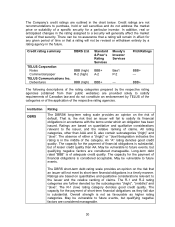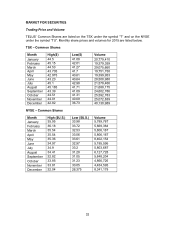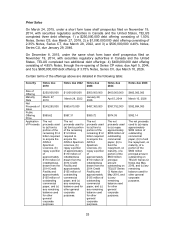Telus 2015 Annual Report Download - page 24
Download and view the complete annual report
Please find page 24 of the 2015 Telus annual report below. You can navigate through the pages in the report by either clicking on the pages listed below, or by using the keyword search tool below to find specific information within the annual report.24
REGULATION
General
Telecommunications services, broadcasting services and radiocommunications services
in Canada are regulated under federal legislation by the CRTC, the Minister of Canadian
Heritage and the Minister of Innovation, Science and Economic Development pursuant
to the Telecommunications Act, the Broadcasting Act and the Radiocommunication Act.
The Telecommunications Act gives the CRTC the power to regulate the provision of
telecommunications services, and to forbear from regulating (e.g. not requiring carriers
to file tariffs) certain services or classes of services if they are or will be subject to a
degree of competition sufficient to protect the interests of customers. The CRTC may
refrain, in whole or in part, and conditionally or unconditionally, from regulating a
telecommunications service. For example, even when the CRTC forbears from rate
regulation in respect of a service, it can continue to regulate the service in other
respects, including with respect to the conditions under which it is offered, for example,
to ensure network access and interconnection.
See Section 10.4 Regulatory matters in the 2015 annual MD&A for further details related
to regulation generally.
Regulation of wireless services
Wireless telecommunications services depend on the use of radio frequencies. The use
of radio spectrum and radio apparatus is subject to licensing by the Minister of
Innovation, Science and Economic Development pursuant to the Radiocommunication
Act. The CRTC has jurisdiction over the rates, terms and conditions applicable to the
provision of wireless service. The CRTC and the Minister of Innovation, Science and
Economic Development exercise complementary, non-overlapping jurisdiction over
wireless service – each regulating different aspects of the same service. The Minister of
Innovation, Science and Economic Development has the authority to suspend or revoke
radio authorizations (i) with the consent of the holder, (ii) where the holder has
contravened the Radiocommunication Act, the regulations or terms and conditions of its
radio authorization, or where the radio authorization was obtained through
misrepresentation, and (iii) where the holder has failed to comply with a request to pay
fees or interest due. Licence revocation is rare; licences are usually renewed upon
expiration. Commercial mobile radio spectrum licenses are typically issued for a duration
of 10 or 20 years with a high expectation of renewal where all conditions of license,
including deployment, have been met.
See Section 10.4 Regulatory matters in the 2015 annual MD&A for further details related
to regulation of wireless services generally and specifically in relation to compliance with
license conditions and telecommunications regulations.



